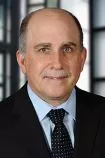- within Immigration, Environment and Real Estate and Construction topic(s)
- with readers working within the Consumer Industries and Environment & Waste Management industries
(An Insurer with Financial Responsibility for a Bankruptcy Claim is a "Real Party in Interest" under 11 U.S.C. § 1109(b) and Can Raise Objections to a Chapter 11 Reorganization Plan)
(October 2024) - In Truck Insurance Exchange v. Kaiser Gypsum Company, Inc., 144 S. Ct. 1414 (June 6, 2024), the U.S. Supreme Court reversed the judgment of the U.S. Court of Appeals for the Fourth Circuit. In this case, the issue before the Supreme Court was whether an insurer with financial responsibility for a bankruptcy claim is a "party in interest" under 11 U.S.C. § 1109(b), which allows any "party in interest" to "raise" and "be heard on any issue" in a Chapter 11 bankruptcy.
Truck Insurance Exchange ("Truck") was the primary insurer for companies that manufactured and sold products containing asbestos. Those companies filed for Chapter 11 bankruptcy after facing thousands of asbestos-related lawsuits. Truck is obligated to pay up to $500,000 per asbestos claim covered under its insurance policies with the companies. Truck sought to oppose the companies' bankruptcy reorganization plan under section 1109(b), arguing, among other things, that the plan lacked disclosure requirements that could save it from paying millions of dollars in fraudulent claims. Following the Bankruptcy Court's recommendation, the U.S. District Court for the Western District of North Carolina confirmed the plan. The Fourth Circuit affirmed, concluding that Truck was not a "party in interest" under section 1109(b) because the reorganization plan was "insurance neutral," meaning it neither increased Truck's prepetition obligations or impaired its rights under the insurance policies. The Supreme Court then granted certiorari to decide whether an insurer with financial responsibility for a bankruptcy claim is a "party in interest" under section 1109(b).
Section 1109(b) permits any "party in interest" to "appear and be heard on any issue" in a Chapter 11 proceeding. The Supreme Court noted that the general theory behind section 1109(b) "is that anyone holding a direct financial stake in the outcome of the case should have an opportunity (either directly or through an appropriate representative) to participate in the adjudication of any issue that may ultimately shape the disposition of his or her interest." The Supreme Court observed that this theory aligns with Congress's use of the phrase "real party in interest" in bankruptcy provisions when it intends the provision to apply broadly. Additionally, after looking at the ordinary meanings of "party" and "interest," the Supreme Court found that the plain meaning of the phrase "real party in interest" "refers to entities that are potentially concerned with or affected by a proceeding." The Supreme Court also noted that the historical context and purpose of section 1109(b) supports this interpretation. Indeed, "Congress consistently has acted to promote greater participate in reorganization proceedings" and "road participation promotes a fair and equitable reorganization process."
Applying the above principles, the Supreme Court concluded that Truck was a "party in interest" under section 1109(b). Specifically, the Supreme Court held that an insurance company "with financial responsibility for a bankruptcy claim is sufficiently concerned with, or affected by, the proceedings to be a 'party in interest' that can raise objections to a reorganization plan." The Supreme Court reasoned that bankruptcy reorganization proceedings can affect an insurer's interests in a number of ways, including impairing an insurer's contractual right to control settlement or defend claims; or, as Truck alleged, a plan may be collusive, in violation of a debtor's duty to cooperate and assist, and impair the insurer's financial interests by inviting fraudulent claims.
The Supreme Court disagreed with the Fourth Circuit, looking exclusively at whether the plan altered Truck's contract rights or its "quantum of liability" in assessing whether Truck had a right to object to the plan. Under this approach, known as the "insurance neutrality" doctrine, courts ask if the plan increases the insurer's prepetition obligations or impairs the insurers' prepetition policy rights. The Supreme Court found that this approach conflates the merits of an objection with the preliminary inquiry of whether a party has standing under section 1109(b). The inquiry under section 1109(b) "asks whether the reorganization proceedings might affect a prospective party, not how a particular reorganization plan actually affects that party." As a result, the Supreme Court held that the fact that Truck's financial exposure may be directly and adversely affected by a plan is sufficient to give Truck a right to voice its objections to that plan.
Based on its finding that an insurer with financial responsibility for bankruptcy claims is a "party in interest" that may object to a Chapter 11 plan of reorganization, the Supreme Court reversed the judgment by the Fourth Circuit and remanded the case for further proceedings consistent with its opinion.
The content of this article is intended to provide a general guide to the subject matter. Specialist advice should be sought about your specific circumstances.


